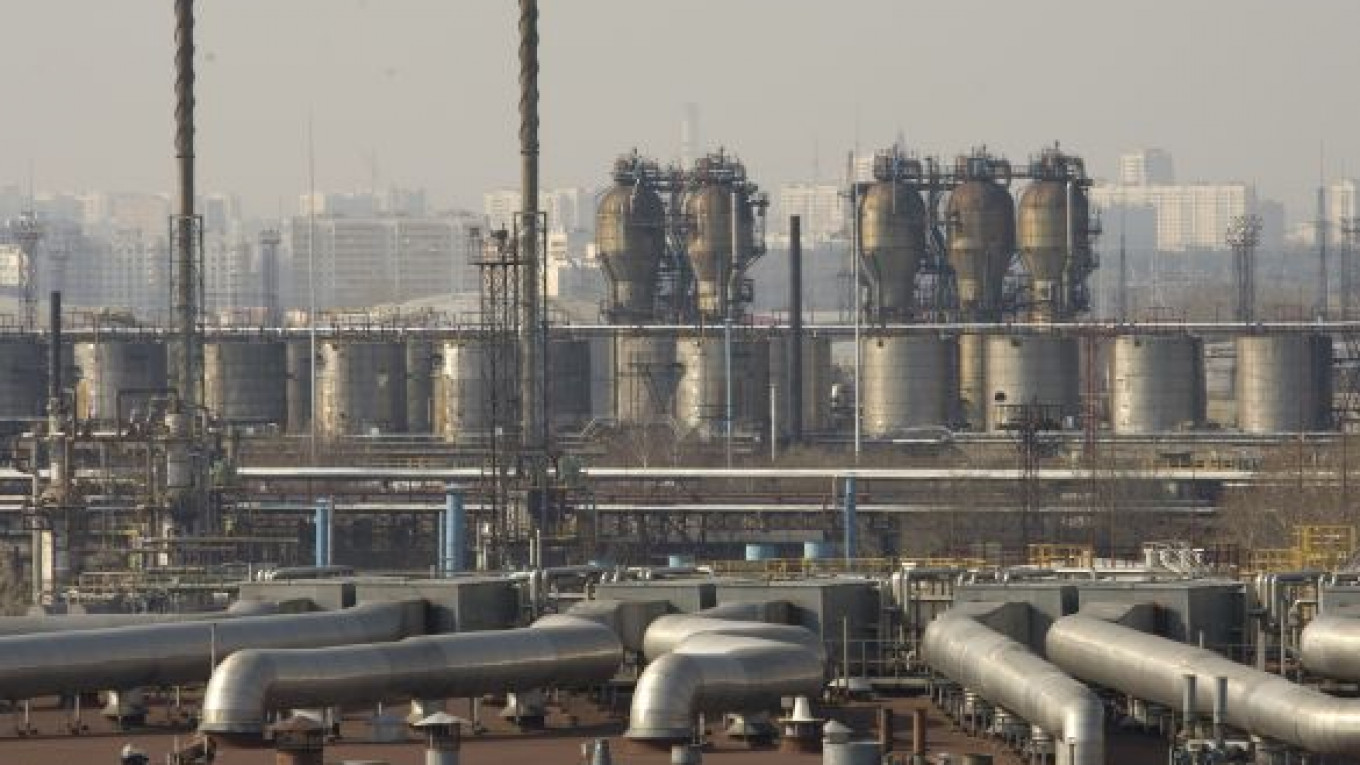SINGAPORE — Politics have long skewed oil supply lines, but this year's confluence of events has sent Siberian oil on its way to Peru in a hitherto unchartered trade route, and made it profitable for Belgian chocolatiers to run vans with Indian-processed Colombian oil.
Markets are stretching to reallocate supplies in the wake of four major events this year: Libya's civil war, rising Saudi output, the release of emergency oil stockpiles coordinated by the International Energy Agency and a payments dispute between India and Iran.
"Geopolitical events have triggered crazy distortions of oil flows at a global level," said Tony Nunan, a risk manager with Mitsubishi in Tokyo. "The IEA release caused a secondary tsunami of unintended crude flows."
Oil markets are withstanding the most enduring supply shock since the 2003 Iraq War, the loss of 1.3 million barrels per day of Libyan oil exports, while absorbing the release of IEA oil. Most of the crude in the release was sold in the United States, displacing its more usual imports.
U.S. crude imports from West Africa that would have amounted to about 19 million barrels in August have been re-routed, virtually halting shipments of Nigerian and Angolan crude to North America.
Europe will receive as much as 40 million barrels of crude from West Africa in August, up from about 28 million in July.
West African crude flows to Asia are also increasing after the IEA release improved arbitrage economics.
"The increasingly active involvement by consumer governments has deepened the politicization of the oil market," said London-based Barclays Capital oil analyst Amrita Sen.
This means that long-standing arbitrage strategies may be at risk and new ones are being formed, while producers, refiners and consumers must cope with growing market swings. Oil price volatility in the second quarter surged to its highest level in more than two years.
Five large cargoes of Iraqi Basra Light crude, an unaccustomed guest in Europe, are heading to the continent in a rare development triggered by the IEA oil stocks release and a strengthening of Russian crude values.
The increase in U.S. shale oil production feeding into the landlocked Cushing hub in Oklahoma, the inauguration of a pipeline pumping 300,000 bpd of Siberian high-quality crude into northern China and Japan's earthquake have also been key factors in changing arbitrage flows this year.
Asia is key as an intermediary in the new pattern because of the surplus it holds in top-grade refining capacity. Saudi Arabia has increased production of lower-quality crude, which required more sophisticated processing to turn into fuels, partly compensating for the top-quality oil that Libya sent to European refiners.
The rise in Mediterranean supplies following the IEA release is reopening export opportunities to Asia, with high-quality Algerian crude sailing to Indonesia again. This marks a turnaround from the deficit of light and sweet crude that prevailed in Europe for most of the first half of the year.
As West and North African crude returns to Asia, it is freeing up Russian oil for export to the Americas. But with a saturated North American market after the IEA release, ESPO Blend crude pumped from East Siberia to the Pacific Ocean is looking for homes elsewhere.
ESPO is traveling through the Malacca Straits and Suez Canal to the Mediterranean, traders said, and diagonally across the Pacific Ocean to South America, both unprecedented flows.
From the Americas to Asia, flows of lower-quality Colombian crude are increasing to India, which has the sophisticated refining capacity necessary to transform cheaper crude into high-value light oil products that are then shipped around the globe.
India is also coping with the imminent suspension of shipments of Iranian crude. New Delhi has caved in to U.S. pressure to ditch a long-standing mechanism for payment of oil imports from Iran, which stopped allocating crude to Indian refiners for August. At stake is a crude flow of 400,000 bpd between OPEC's second-largest producer and Asia's third-largest consumer.
The U.S.-led strategy to isolate Iran may be clashing against efforts to cap the oil price and safeguard a fragile global economic recovery, said John Vautrain, director at Purvin & Gertz energy consultants in Singapore.
"It seems like they [the United States] have shot themselves in the foot again. If you manage to engineer a shortage, you are cutting supplies from a country and hurting the Indian and the world economies," Vautrain said, comparing it to a multi-year strategy to block Iran's gasoline imports.
Top exporter Saudi Arabia's unilateral decision to increase production this year after OPEC's failed meeting in June enraged Iran. The Saudis this week approved sales of 3 million barrels of extra crude to India for August to make up for a loss of shipments from Iran.
A Message from The Moscow Times:
Dear readers,
We are facing unprecedented challenges. Russia's Prosecutor General's Office has designated The Moscow Times as an "undesirable" organization, criminalizing our work and putting our staff at risk of prosecution. This follows our earlier unjust labeling as a "foreign agent."
These actions are direct attempts to silence independent journalism in Russia. The authorities claim our work "discredits the decisions of the Russian leadership." We see things differently: we strive to provide accurate, unbiased reporting on Russia.
We, the journalists of The Moscow Times, refuse to be silenced. But to continue our work, we need your help.
Your support, no matter how small, makes a world of difference. If you can, please support us monthly starting from just $2. It's quick to set up, and every contribution makes a significant impact.
By supporting The Moscow Times, you're defending open, independent journalism in the face of repression. Thank you for standing with us.
Remind me later.






